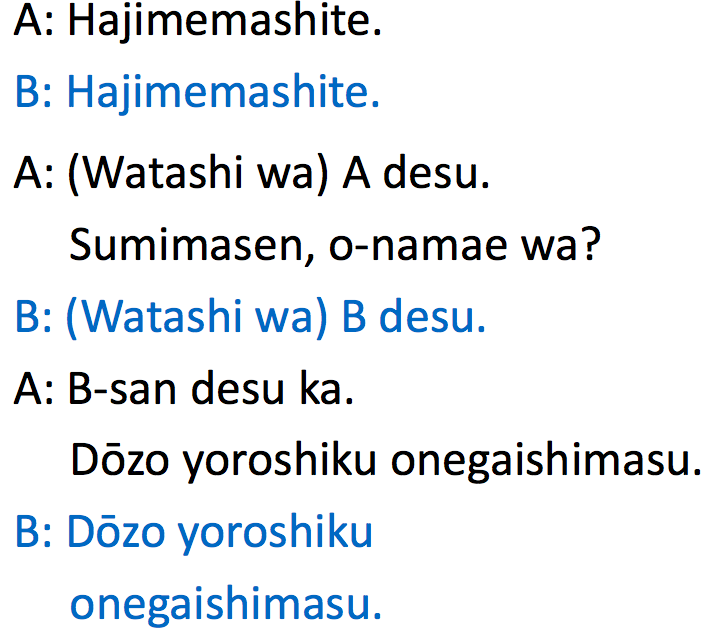Today we learnt numbers (0-10), how to introduce someone else, asking others questions like what school they’re from and how old they are.
A conversation between two people might go like this:

I am a student. | (Watashi wa) gakuse desu.
I’m a Waseda University student. | Waseda Daigaku no gakuse desu.
My major is English Literature. | Senko wa Ebun Bungaku desu.
ASKING ONE’S NATIONALITY
The word ‘ka | か’ is added at the end of a sentence to turn the statement into a question.
Are you Japanese? | Nihon jin desu ka?
– – – – – – – – Yes, I am. | Hai, Nihon jin desu.
– – – – – – – – No, I’m Singaporean.| Ie, Shingaporu jin desu.
ASKING ONE’S AGE
There’re two ways of asking someone’s age. ‘Oikutsu’ is a more polite way of asking.
(I don’t mean to be rude, but) how old are you? | (Shitsure desu ga), oikutsu desu ka?
– – – – – – – – 23-sai desu. | I’m 23 years old.
ASKING ONE’S YEAR OF STUDY
The word ‘Nan’ means “What”.
What year are you in ? | Nan nense desu ka?
– – – – – – – – Ichi-nense desu. | I’m in the first year.
* To say “I’m also in the first year”, the particle ‘mo’ is used instead of ‘wa’.
I’m also in the first year. | Watashi mo ichi-nense desu.
NUMBERS
0 | Cero
1 | Ichi
2 | Ni
3 | San
4 | Yon
5 | Go
6 | Roku
7 | Nana
8 | Hachi
9 | Kyu
10 | Juu


